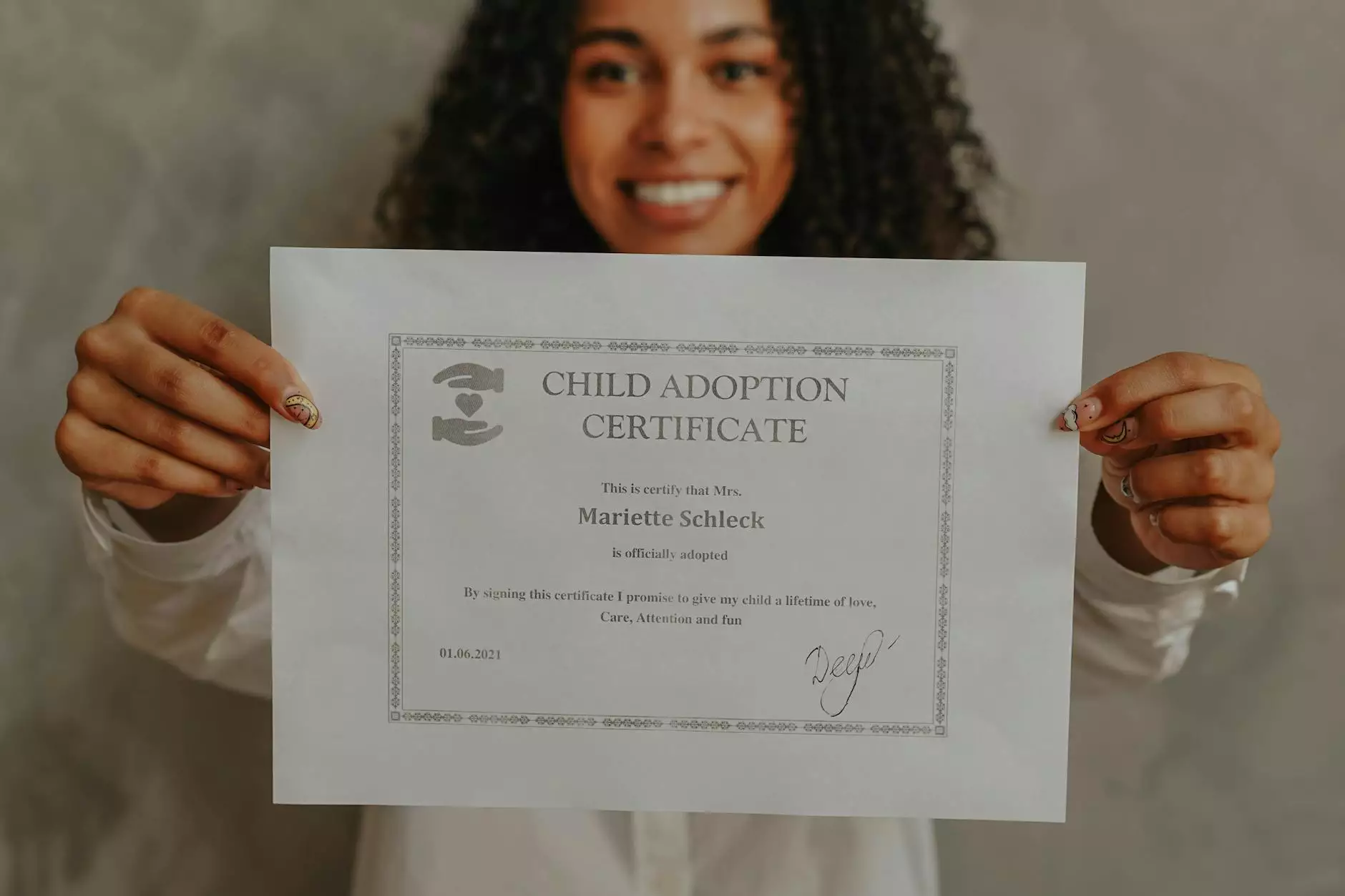Achieving Business Success with OKR Coach Certification

In today’s dynamic and expansive business landscape, organizations are under constant pressure to deliver exceptional results and foster sustainable growth. A significant trend that has emerged is the adoption of the Objectives and Key Results (OKR) framework. Businesses seeking to instill a culture of high-performance and accountability are increasingly turning to qualified professionals through the OKR Coach Certification. This article dives deep into how this certification transforms both individuals and organizations.
Understanding the OKR Framework
The OKR framework, which originated from Intel in the 1970s, is a powerful management tool that helps organizations define and track objectives and their outcomes. It provides a structured approach to setting clear and measurable goals that align with the company’s vision and strategic priorities. The simplicity and effectiveness of OKRs have made them a staple in many successful organizations, including Google, LinkedIn, and Twitter.
The Two Core Components of OKRs
- Objectives: These are the overarching goals that are qualitative and define what you want to achieve. Objectives should be inspirational, meant to motivate both individuals and teams.
- Key Results: These are measurable outcomes that indicate how you will achieve your objectives. Key Results should be specific, time-bound, and quantifiable, providing a clear path to achieving the objectives.
The Role of an OKR Coach
An OKR coach is a trained professional equipped with the knowledge and skills necessary to guide organizations in implementing the OKR framework effectively. Through the OKR Coach Certification, individuals gain the expertise to facilitate goal-setting workshops, mentor teams, and drive cultural change within organizations.
Key Responsibilities of an OKR Coach
- Training and Education: Coaches provide comprehensive training to teams, helping them understand the principles of OKRs and how to implement them in their work.
- Facilitating Alignment: They assist organizations in aligning their OKRs with the business’s strategic direction, ensuring that every team and individual is working towards the same goals.
- Monitoring Progress: OKR coaches help teams track their progress, ensuring that key results are being met and providing support to facilitate adjustments as necessary.
- Continuous Improvement: They provide ongoing support, encouraging teams to reflect on their performances and learn from both successes and failures.
Benefits of OKR Coach Certification
Obtaining an OKR Coach Certification not only enhances your skills but also provides numerous advantages for your career and the organizations you work with. Here are the key benefits:
1. Enhanced Leadership Skills
As a certified OKR coach, you develop superior leadership qualities. You learn to inspire teams, create a vision, and drive significant results, equipping you to handle leadership roles within organizations.
2. Improved Team Dynamics
By implementing the OKR framework, organizations report improved collaboration and communication among teams. As an OKR coach, you foster an environment where teams are motivated to work towards shared objectives.
3. Increased Accountability
OKRs cultivate a culture of accountability. Coaches instill discipline in teams to meet their commitments and drive results through regular check-ins and reviews.
How to Pursue OKR Coach Certification
The journey to becoming a certified OKR coach involves several steps:
1. Research Training Programs
Identify reputable training programs that offer OKR Coach Certification. Look for those that provide comprehensive coverage of the OKR methodology and its applications across various industries.
2. Enroll and Participate
Once you've found a suitable program, enroll and engage actively. Participate in workshops, case studies, and hands-on activities to gain practical insights.
3. Gain Experience
After completing your training, gain experience by working with organizations that are implementing OKRs. Practical application enhances learning and refines your coaching skills.
4. Get Certified
Upon successful completion of your training and practical experience, you will be eligible for certification. Complete the required assessments to obtain your OKR Coach Certification.
Implementing OKR Practices in Your Organization
With an OKR Coach Certification, you have the tools to help organizations implement OKRs successfully. Here are steps to consider when leading an organization through the OKR process:
Step 1: Set Clear Objectives
Work with leadership to define clear and ambitious objectives that align with the company's vision. Involve key stakeholders to ensure buy-in and commitment.
Step 2: Establish Key Results
Guide teams in identifying specific and measurable Key Results that will showcase their progress in achieving the set objectives. Encourage them to think critically about how they will measure success.
Step 3: Regular Check-ins
Implement a cadence for regular check-ins where teams review their progress, discuss challenges, and adjust their plans as needed. This creates a dynamic environment where feedback is constructive and ongoing.
Step 4: Foster a Culture of Transparency and Learning
Encourage a transparent culture where teams feel safe to share challenges and successes. Learning from each cycle fosters continuous improvement and innovation.
Success Stories: Transformations through OKRs
Many organizations have documented notable transformations after incorporating the OKR framework, often facilitated by a skilled OKR coach. Here are a few success stories:
Case Study 1: Google
Google is one of the most recognized companies utilizing OKRs effectively. Their transparent goal-setting approach has enabled them to scale operations while maintaining alignment across teams, driving unprecedented growth.
Case Study 2: The Gates Foundation
The Gates Foundation embraced the OKR framework to streamline its philanthropic efforts, aligning their ambitious goals with measurable outcomes. This had a significant impact on enhancing accountability and focus across their global initiatives.
Case Study 3: LinkedIn
LinkedIn leveraged OKRs to unify their team efforts as they expanded into new markets. By creating aligned objectives, LinkedIn could effectively collaborative and innovative, paving the way for successful growth strategies.
Conclusion: Your Path to Business Excellence
The journey of implementing the OKR framework can be a transformative experience, both for individuals and organizations. Obtaining an OKR Coach Certification equips you with the tools to lead teams toward achieving remarkable results and instilling a culture of high performance. By focusing on clear objectives and measurable outcomes, organizations can enhance their strategic planning and operational execution, ultimately leading to sustained success.
Are you ready to embark on this fulfilling journey and make a significant impact in your organization? Consider investing in your future with OKR Coach Certification. The potential is limitless.









